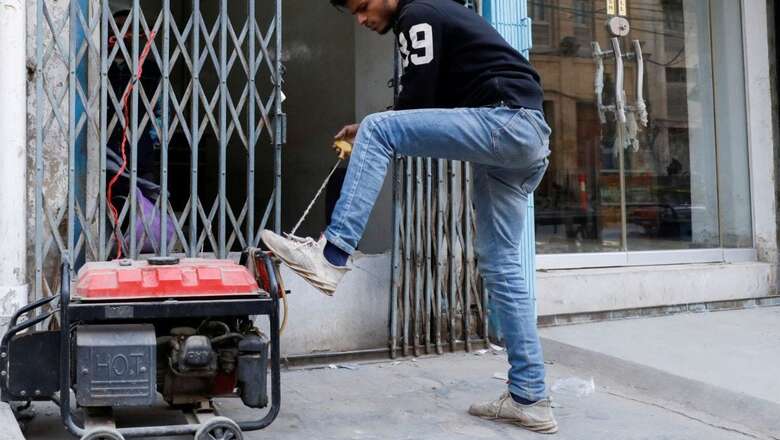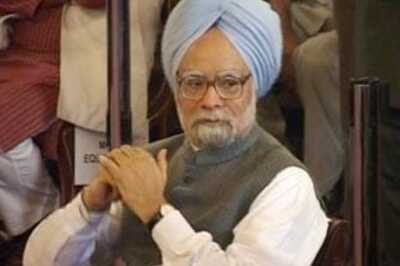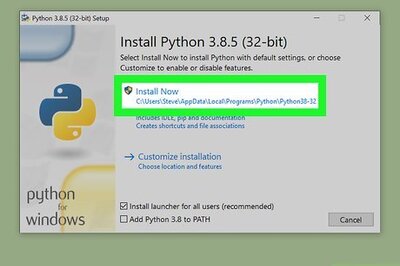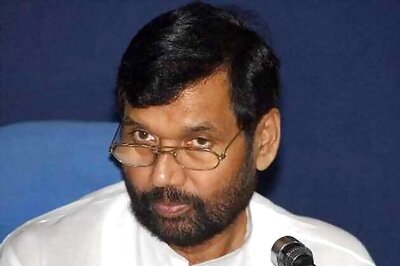
views
The entire National Capital Region (NCR), including Noida, is undergoing a significant transition in its power supply infrastructure. The impending ban on diesel generator (DG) sets, scheduled to take effect from October 1, has left residents of apartment complexes and society representatives in a state of uncertainty.
These societies are currently grappling with logistical challenges and uncertainties, ranging from concerns about penalties to financial matters, all exacerbated by the limited time available for adaptation.
What is this ban
A few months ago the Commission for Air Quality Management in the National Capital Region and Adjoining Areas issued an advisory regarding the regulation of diesel generators in NCR. Recognising the significant impact of uncontrolled DG set usage on air quality in the region, the commission has taken measures to address this issue.
In the past, diesel generators were permitted for specific emergency purposes during periods of air quality restrictions. However, the commission later evolved strategies to substantially reduce emissions from DG sets. This includes transitioning existing DG sets to a dual fuel mode (gas+diesel) and retrofitting emission control devices (ECDs) to lower particulate matter (PM) levels.
According to the advisory, the commission mandated the completion of dual fuel kit retrofitting or ECD installation by September 30. State governments and relevant agencies were urged to disseminate these guidelines and sensitise stakeholders accordingly.
Status report
As the deadline for the transformation approaches at the end of September, News18 reached out to residents of high-rise apartments and association members. They shared their experiences and the challenges they have encountered since the advisory was issued.
First of all, the Apartment Owners Associations (AOAs) have been grappling with financial concerns. They are still in the process of the transformation and are actively persuading residents to contribute towards the necessary modifications in DG sets within their societies. While certain residents feel compelled to cover the prescribed expenses, others are reluctant to contribute.
Rajiva Singh, president of the Noida Federation of Apartment Owners Associations (NOFAA), highlighted: “There are many residents who are old and retired people. Their only income is their pension. There are also some residents, facing financial issues since the pandemic. So how can they contribute a huge amount of money for such infrastructural change?”
He mentioned that even if every member of an apartment complex contributes an equal amount for only the green fuel conversion, which may amount to approximately Rs 15-20 lakh, there are still older generators that require replacement, meaning another Rs 30-40 lakh needs to be spent.
Secondly, Singh mentioned that the availability of new-generation green fuel-powered generator sets is limited. Therefore, even if some societies convert their old DG sets to run on green fuel, if any issues arise, such as breakdowns or malfunctions, the company responsible for the original product may not assume responsibility. This could lead to additional financial burdens on residents.
Regarding this matter, he also sent a letter to the managing director of UP Power Corporation Ltd, power minister AK Sharma, and UP chief secretary DS Mishra, showcasing where the problem lies.
In the letter, Singh stated: “With the subject directive, it becomes extremely important that DISCOMs ensure uninterrupted power supply in Gautam Budh Nagar so as to fully obviate the use of DG sets.”
As per the letter, high-rise societies particularly depend on continuous power as they rely on lifts for daily functioning. Condominiums function as small townships, and any power disruption affects essential services, including water supply, security, medical support, and more.
The letter further noted that the financial burden of converting DG sets is a concern for residents, and the limited availability of conversion kits has led to high prices. “Our request is to kindly defer the directive no. 73 till the time the DISCOMs can provide 24×7 uninterrupted power supply so that we are not required to run the DG set at all, which are in itself a big source of noise as well as air pollution,” it added.
Numerous residents in both housing societies and independent houses have resorted to using DG sets or inverters due to frequent, lengthy power outages in the Noida region. Residents in housing societies had become accustomed to this lifestyle, willingly shouldering the additional costs on their electricity bills when DG sets were in use. However, the new guidelines have rekindled the awareness that with access to uninterrupted power supply, these backup solutions would become unnecessary.
However, he said: “We are not saying that we won’t comply with the guidelines, we just need some time because it is a matter of huge financial contribution by the residents, and we can do it in a phased manner. Most of the societies are in the process of converting from diesel to eco-friendly fuel or changing the complete setup.”
Umashankar Sharma, president of Silvercity Apartment and secretary of the Legal Federation of Noida Residents Welfare Association (FONRWA), mentioned that in his society, they are currently in the process of determining the steps required to either replace or convert the DG sets into environmentally friendly fuel systems.
Sharma also emphasised the challenge of purchasing new generators, which can cost Rs 15 lakh or more, and due to the lack of prior experience, there is confusion regarding which type to procure. Like Singh, he also pointed out that “convincing people to allocate funds for this infrastructure change during the general body meeting is a challenging task. But since there is no option left we have to plan accordingly and find a solution.”
Sharma said, “Another issue we face in societies like ours is the time constraint. Even if we opt for a complete overhaul, some vendors state that they can only deliver after a 3 or 4-month waiting period. Also, for IGL commercial connection, they have their own documentation process and timeline, and there also we have to give a huge amount of security deposit for this. Even if we do everything from our end, a minimum of 6 months will be needed for the complete transformation.”
Sharma expressed these concerns to Manish Kumar Verma, DM of Gautam Buddh Nagar, in an informal meeting, underscoring that achieving a complete transformation by October 1 might not be feasible. In response, Verma apparently suggested that initiating the process of purchasing new sets would demonstrate the intent to comply with the guidelines and this proactive approach might lead to some leniency or flexibility regarding penalties.
However, some societies face more complex challenges. For instance, two representatives from the Amrapali Zodiac Society explicitly mentioned that they hadn’t initiated the process yet. This is because the property is under the management of NBCC Ltd, which was mandated by the Supreme Court to complete certain stalled and incomplete projects of Amrapali.
As per one of the representatives, “The electrical infrastructure remains unfinished. We have sent a letter to the Office of Court Receiver, stating that upon handover, we will only accept the converted sets. They should replace the sets and then transfer them to the society association.” But, they say, they haven’t heard anything so far.




















Comments
0 comment